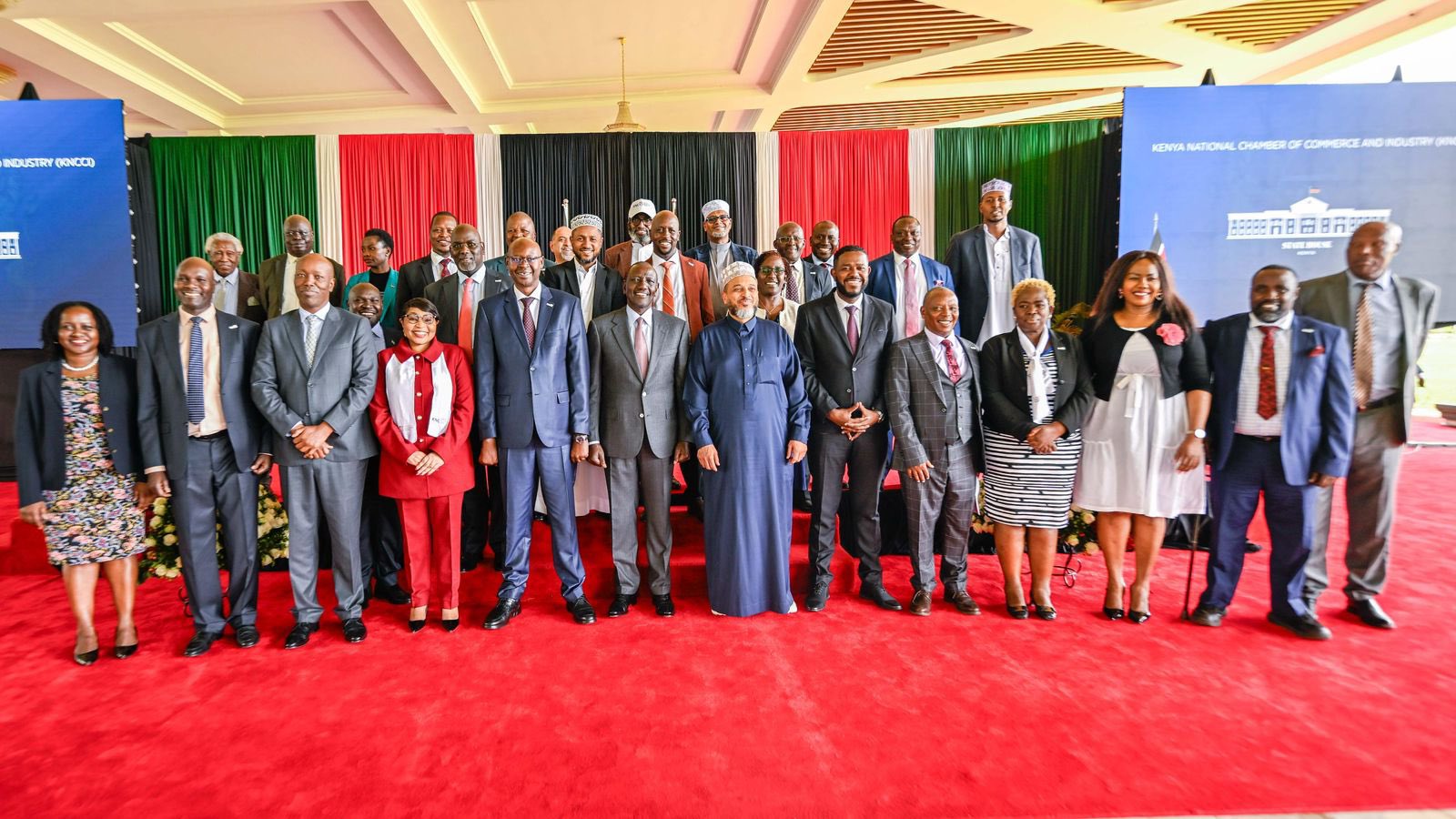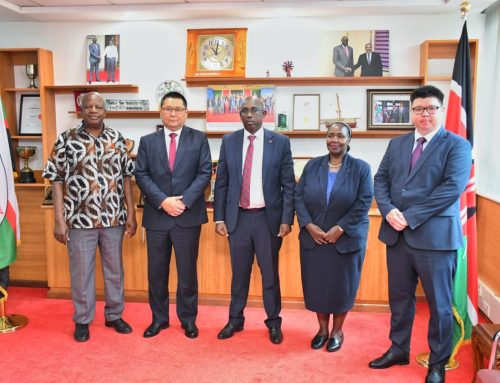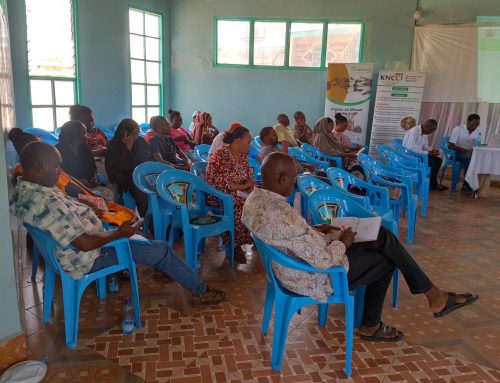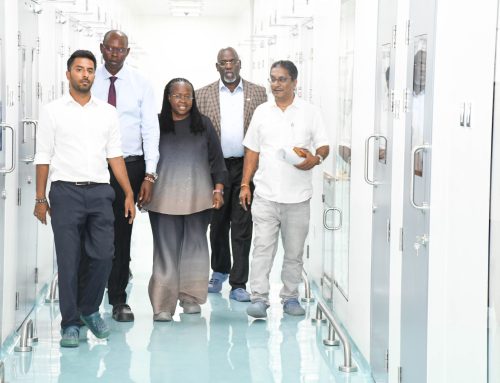Appreciation of Key Government Reforms
· Macroeconomic Stabilization
- Inflation reduced significantly from 9.6% (Sept 2022) to a 17-year low of 2.7% by Oct 2024.
- Kenyan Shilling appreciated by approximately 20% against the US dollar in 2024, making it Africa’s best-performing currency.
- Fiscal consolidation reduced the budget deficit target from 5.7% (FY2023/24) to 4.5% (FY2025), with public debt projected at ~64.8% of GDP.
· Fiscal and Economic Reforms
- The government launched an Electronic Government Procurement (e-GP) system by Q1 2025. This digital procurement reform ensures businesses can compete fairly for government contracts, fulfilling the President’s pledge to eliminate insider dealing.
- In 2024, the government partnered with banks to launch an MSME Accelerator Program and secured a pledge of KSh150 billion in new MSME loans annually from 2025.
· Business and Investment Climate
- Hustler Fund has provided unsecured loans at 8% interest to over 25 million Kenyans since November 2022. Part of that has gone to business community.
- Over 5,000 (out of ~7,000) government services digitized via the eCitizen platform.
- Established the Ministry of dedicated Co-operatives and MSME Development, integrating key SME support programs and financing initiatives. MSMEs compose of 98% of the businesses, 86% of jibs; but contributes about 40% of GDP.
· Sectoral Support & Productivity Initiatives
- Agriculture:
- Enhanced Fertilizer Subsidy: The government’s fertilizer subsidy program has significantly by increasing output and reducing production costs. Contributing to food security and enhancing competitiveness of products.
- Tea Sector: Achieved record-high export earnings of Ks5 billion in 2023, a 30% increase due to enforced regulations and cartel crackdown.
- Coffee Sector: Initiated comprehensive reforms aimed at revitalizing Kenya’s coffee industry. Kenyan coffee farmers are experiencing improved earnings, with cherry prices ranging from Ksh80 to Ksh149 per kilogram.
- Sugar Sector: Implemented the Sugar Act 2024, revitalizing the sugar industry through regulatory reforms and new frameworks.
- Acknowledgment of President’s Participation at WCF Summit
- We sincerely thank Your Excellency for gracing the recent World Chambers Federation (WCF) Africa Summit held in Nairobi. Over 600 delegates across 63 chambers globally.
- As a direct outcome of your involvement, the Nairobi Accord was successfully adopted, outlining clear resolutions to strengthen the role of chambers of commerce and industry across Africa in promoting cross-border trade and economic cooperation under AfCFTA. We should have writen all the rules for origin for different products by 2033.
Key Private Sector Challenges (Voiced by KNCCI Members)
We have gathered insights from over 15,000 KNCCI members across the 47 counties: those who run shops in Kisumu, workshops in Machakos, matatu saccos in Mombasa, and tech start-ups in Nakuru.
- Delayed Government Payments (Pending Bills): Delayed payments for completed contracts remain the top concern. Businesses are owed an estimated KES 626 billion in pending bills by national and county entities. This cash-flow crunch has forced many suppliers to downsize or shut down. The Presidential directive to pay within 90 days is often flouted, hurting especially contractors in infrastructure and suppliers of goods.
- Multiple Levies & Permits Across Counties: Entrepreneurs face duplicative fees when expanding beyond their home county. Separate permits, advertising fees, and local licenses in each county raise the cost of production.
- These fragmented levies discourage inter-county trade and complicate compliance.
- Limited Access to Affordable Credit: Despite improvements, many SMEs still struggle to obtain credit. High interest rates and strict collateral requirements limit growth opportunities. Commercial bank lending to SMEs is constrained, and even government funds are scrase and can be hard to navigate for micro-enterprises.
- Infrastructure Gaps: Inadequate infrastructure (roads, electricity, water, internet) continues to hinder business operations in various regions. Suggest a competitive rate of 7-8cents per kilowatt hour.
- Market Access & Value Addition Constraints: Kenyan businesses, especially in agriculture and manufacturing, face difficulties accessing larger markets. Limited market linkages and insufficient value addition mean producers often sell raw products at low prices.
- Skills Gaps and Workforce Mismatch: Many industries cite a mismatch between available skills and market needs.
KNCCI’s Proposed Solutions & Recommendations
- Fast-Track Clearance of Pending Bills (KES 626 Billion) via Bond: KNCCI urges the government to clear the KES 626B pending bills by raising funds through a special Treasury bond. Securitizing these debts would immediately inject liquidity into the private sector. Benefits: businesses get paid, preventing further closures; repaid firms will reinvest, pay taxes (about 20% with revert back to Government), and retain jobs, stimulating economic activity (with positive ripple effects in stimulating the economy). This one move could reignite stalled projects nationwide and bolster confidence in doing business with government.
- Tax Regime Review: Cap the Turnover Tax at a maximum of 0.5% for with no additional VAT or Corporate Income Tax (CIT).
- We are also proposing a two-year tax holiday for start-up enterprises.
- This change will significantly ease the tax burden on micro-enterprises, encourage compliance, and support the transition from informal to formal business structures.
- Case study on India.
- Reserve Public Contracts < KES 5B for Local Contractors: The Chamber urges an executive policy reserving all public tenders under KES 5 billion exclusively for Kenyan contractors and firms. Large foreign firms often dominate even mid-sized projects; ring-fencing this segment for locals will nurture domestic engineering and construction capacity.
- Create a Construction & Export Guarantee Bank: To support local industries, we recommend establishing a specialized Guarantee Bank focused on construction and export-oriented businesses. This entity would provide credit guarantees and insurance for local contractors and exporters, enabling them to access bank loans and bid for larger projects.
- Modernize KIE, KIDC, and AFC for Greater Credit Access: We propose a revamp of key development finance institutions – Kenya Industrial Estates (KIE), Kenya Industrial Development Corporation (KIDC), and the Agricultural Finance Corporation (AFC). Modernizing their operations, increasing their capital, and streamlining their loan processes will unlock credit to SMEs in manufacturing, industry, and agriculture.
- Scale Up KNCCI SACCO by issuing a loan of KES 2 Billion Fund for SME Loans: Building on the success of the KNCCI Jiinue growth Program, we propose a KES 2 billion capitalization of the KNCCI SACCO dedicated to low-interest MSMEs business loans.
- Justification: The Jiinue Growth Program, in partnership with Mastercard Foundation, has already empowered 26,000 MSMEs, disbursing Ksh 400 million and has created new jobs. With additional funding, the SACCO can provide affordable credit to thousands small businesses (e.g. smallholder farmers, women-led startups), leveraging on KNCCI’s grassroots network that has an outreach in the 47 Counties of Kenya.
- Case studies from Jiinue show that small loans (Ksh 5k-100k) coupled with capacity building led to business growth due to access of affordable credit. This has been demonstrated by increased revenue growth of 26% among the participating businesses, as well as job creation for the youth along the value chains in sectors like retail & trade, agriculture, manufacturing and artisans. We seek government’s support to scale up this impact as has been demonstrated in the current program.
- Samburu case study – Genco Livestock Slaughter & Export (Doreen, 34 years). Demonstrated increased revenue growth of 63%, increased export to 6 tons weekly, additional employees from 6 to 13 and community reach of 16,086 people.
- Case study of the lady from Eldoret on the ground nut butter business.
- Scale Up KNCCI SACCO by issuing a loan of KES 2 Billion Fund for SME Loans: Building on the success of the KNCCI Jiinue growth Program, we propose a KES 2 billion capitalization of the KNCCI SACCO dedicated to low-interest MSMEs business loans.
- Implement a Unified National Business Permit: KNCCI seeks policy support to roll out a single Unified Business Permit valid across all 47 counties. This one-stop permit would replace the current patchwork of county trade licenses, substantially reducing bureaucracy and cost for businesses.
- Expand Sectoral Digitization & Reforms – Agriculture Digitization: We support and request expansion of digital programs in agriculture to increase productivity and farmer incomes. Example: Dairy Cooperative Societies in Uasin Gishu have piloted an ICT system that digitizes milk collection, quality testing, and payments to farmers. With a simple mobile application, dairy farmers get instant SMS notifications of delivered quantities and payments, improving transparency and trust. Scaling such solutions (through PPPs or Ministry of Agriculture support) will streamline the dairy value chain – ensuring timely payments, reducing pilferage, and enabling farmers to use delivery records as proof of income for loans.
- Mining Sector Reforms – Online Cadastre & Youth Cooperatives: The Chamber recognizes and backs ongoing mining sector reforms aimed at transparency and community benefit. The launch of an online mining cadastre system (digital mineral rights registry) will curb corruption and ensure equitable licensing. We also champion the establishment of youth mining cooperatives and a Youth Mining Fund.
- Livestock sector: Fully operationalize the already established National Livestock Marketing Board through proper budgetary allocation, office infrastructure, and staffing to enable it to effectively coordinate, regulate, and promote livestock marketing activities nationally and internationally. Negotiate favourable cargo rates with Kenya Airways and other carriers. Runway extension and strengthen Isiolo International Airport. and also, for Eldoret International Airport for fresh produce exports.
- Authorize KNCCI to Issue Preferential Certificates of Origin: Currently, KNCCI issues ordinary (non-preferential) Certificates of Origin for exports. We request that KNCCI also be empowered to issue Preferential Certificates of Origin for exports under trade agreements (AGOA, EAC, COMESA, AfCFTA, EU-EPA, UK-EPA, etc.). The Return on Investment for this is elaborated by the expansion of some of the activities highlighted below.
- KNCCI China Office – Export Growth and Investor Attraction:
- Since the launch of the KNCCI’s newly established China office in Changsha in late 2023, this office has facilitated Kenyan exporters in entering the vast Chinese market. Results: Over KES 665 million in export orders have been secured for Kenyan products – including coffee, tea, nuts, and fresh produce – giving local producers access to China’s huge consumer base.
- The China office also actively attracts investors. Justin Allen Group EPZ plans to invest USD 5 Million investment at EPZ Athi River EPZ. Hualahula has set up a macadamia drying machine (along Mombasa Road) that would reducing drying periods from 8 to 4 days, target to export good worth kes400million in the first one year.
- KNCCI China Office has been involved in over 30 business activities, attracting over 150 Kenyan Businesses to China and more than 500 Chinese businesspeople to Kenya.
- KNCCI plans to have international offices in DRC, Europe, US and Middle East.
- Successful Trade Missions to Saudi Arabia, Zambia, Ghana and Nigeria:
- KNCCI has actively led trade delegations to deepen intra-African trade. In Zambia (Nov 2024), we co-hosted the Kenya–Zambia Trade Expo in Lusaka, showcasing Kenyan products (tea, coffee, ICT services, etc.) and forging B2B partnerships.
- Likewise, the Kenya–Ghana Business Forum (Mar 2025) under AfCFTA brought 12 Kenyan firms to Accra to meet 60+ Ghanaian companies. Outcomes include MOUs for joint ventures in agro-processing and fintech, and a pipeline of export deals.
- In Zambia and Ghana , deals worth over kes 32 millions were signed during the events.
- KNCCI plans to scale the missions to Africa, Asia, and across the Globe.
- KNCCI China Office – Export Growth and Investor Attraction:
- Establish KNCCI as a Statutory Body: To enhance public-private partnership, we propose anchoring KNCCI in law as a statutory organization. A statutory KNCCI would have a clearer mandate to represent businesses at all levels, working alongside government on policy formulation and execution.
- Your Excellency, in many parts of the world such as Germany, Singapore, and the UAE, Chambers of Commerce are not just advocacy bodies. They are partners in policy co-design, export promotion, workforce development, and national competitiveness. These Governments fund, consult, and co-implement with their Chambers.
- We respectfully ask that your administration embrace this tested model.
- We propose that your office establishes a National Public-Private Dialogue Framework, with KNCCI as a permanent member—to co-design policies and fast-track their implementation.
- Initiate countrywide regular forums and the revival of high-level PPD platforms. Forums to commence at the county level and culminate in a quarterly the national level (jointly convened by National Government and the Council of Governors) and sector-specific roundtables to allow business leaders to voice concerns and contribute to policy solutions.
- Government Acquisition of Ufanisi House: We request the government to purchase Ufanisi House – the Chamber’s underutilized building is currently constrained by Parliament’s security cordon. This move will unlock Ufanisi House for productive use and provide KNCCI with fresh capital resources to expand its services to members.
Your Excellency, I invite you for a presentation of three brief sectoral case studies as the next segment of this meeting. These case studies serve as evidence of transformative private-sector-led impact across key pillars of the Bottom-Up Economic Transformation Agenda (BETA). They include
- Digital Transformation in Agriculture – Dairy Sector,
- Reviving Kenya’s Manufacturing Sector, and
- Mining Sector Reforms for Youth Employment and Local Prosperity.
Each example underscores a forward-looking path of growth and collaboration, reaffirming our commitment to the success of BETA under your leadership.
We warmly invite you to further engage more directly with the grassroots business community. Your interaction with business leaders and entrepreneurs at the county level will not only provide invaluable insights into the realities faced by SMEs but also reinforce the government’s commitment to inclusive economic development. We look forward to facilitating these engagements, as they promise to deepen mutual understanding and enhance collaborative policy-making for sustained national growth.







Leave A Comment